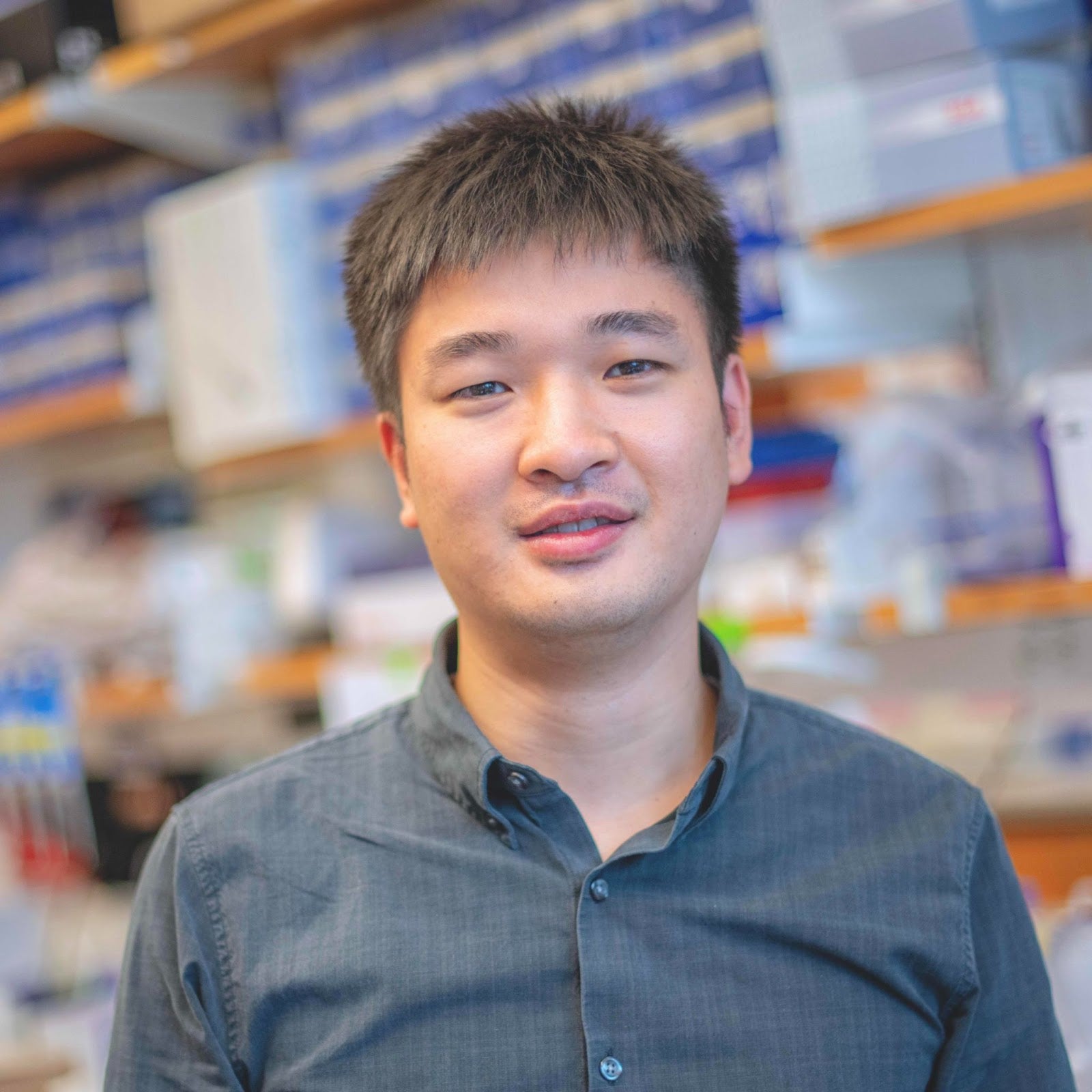Qi Tang went from quiet study corners at URI to pioneering RNA based therapies at UMass Chan, proving that persistence and a passion for science can change lives
For Qi Tang, science is a personal passion and a powerful way to make a difference. A 2019 Ph.D. graduate of The University of Rhode Island’s Pharmaceutical Sciences program, Tang now leads his lab as an assistant professor at UMass Chan Medical School. His work focuses on developing RNA-based therapeutics to treat dermatological diseases, research that blends scientific rigor with the hope of delivering real-world solutions for patients. In this Q&A, Tang reflects on the meaningful mentorship he received at URI, the unexpected moments that shaped his path, and the deep motivation driving his work in the lab today.
URI played a foundational role in shaping me as a scientist.
Q & A
1. How do you stay inspired or motivated in your career?
I’m always motivated by the potential to make a real difference — knowing that the work we’re doing in the lab could be meaningful and might one day lead to disease-modifying therapies that patients have long awaited. Science is often unpredictable and challenging, with plenty of setbacks along the way. But the idea that persistence — even in the face of repeated failures — might eventually pay off is what keeps me going. (And maybe a little caffeine helps, too.) I also find great meaning in mentoring the next generation of scientists. It’s fulfilling to see students grow into motivated researchers who enjoy what they’re doing. It reminds me of where I started and how much my own mentors helped me along the way.
2. Can you tell us about the work you’re currently doing and what you enjoy most about it?
My lab at the University of Massachusetts Chan Medical School focuses on advancing RNA-based therapeutics toward clinical applications for the treatment of dermatological diseases. At UMass Chan, I’m fortunate to work alongside passionate scientists who are deeply committed to leveraging our understanding of disease biology to develop novel therapeutics for patients. What I enjoy most about this work is being in a highly collaborative environment, where the diverse expertise of our team and our shared passion almost always lead to innovative ways of approaching our goals.
3. How did your time at URI help prepare you for your career?
When I began my postdoctoral research at UMass Chan Medical School, I quickly realized how much I had gained from my training at URI.
URI played a foundational role in shaping me as a scientist. When I first met my PhD advisor Dr. Deyu Li on the third floor of Avedisian Hall, he enthusiastically introduced his lab’s research. I was initially intimidated by terms like “nucleic acid chemistry” and “oligonucleotide synthesis” — he sounded just like an organic chemistry professor! But through his patient guidance and encouragement, I gradually entered the field and developed a deep passion for applying that knowledge from a translational perspective. When I began my postdoctoral research at UMass Chan Medical School, which focused on the therapeutic development of oligonucleotides, I quickly realized how much I had gained from my training at URI. That foundation allowed me to make rapid progress on several projects, including identifying the JAK1 siRNA drug now in clinical trials — all within my first two months as a postdoc.
4. What’s one piece of advice you’d give to current students?
What’s worked for me is simply pursuing something I truly love.
I don’t have any specific formulas or advice for how to succeed, and I’m not even sure what counts as success — it’s all subjective and depends on each individual’s perspective. What I do believe is that we’re all different, shaped by how we grew up and the life experiences we’ve had. What’s worked for me is simply pursuing something I truly love, whether it’s a hobby, a career, or the people I choose to surround myself with.
5. Do you have a favorite memory or defining moment from your time at URI?
I loved the $2 afternoon latte promotions at the campus coffee shop in the Memorial Union. It was where I spent countless hours thinking about the kind of science I wanted to pursue in the future while finishing the final year of my PhD training with Dr. Li. I remember sitting in the corner of the coffee shop, latte in hand, reading every paper the Khvorova lab had published on RNA therapeutics development at the time. It’s also the place where I probably consumed enough lattes to keep them in business while trying to stay calm during the long, anxious wait — more than half a year — for a postdoc position in the Khvorova lab. Dr. Anastasia Khvorova later joked with me at one of her house parties that the only qualification that made me stand out from a strong pool of applicants was that no one could match my persistence in bugging her for the position during the application process.

